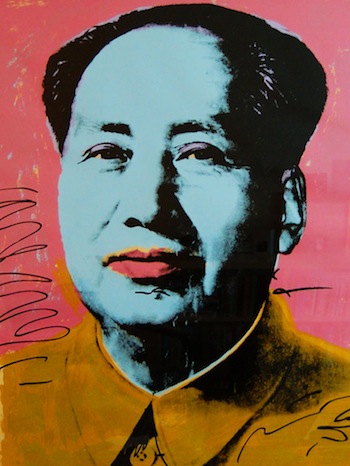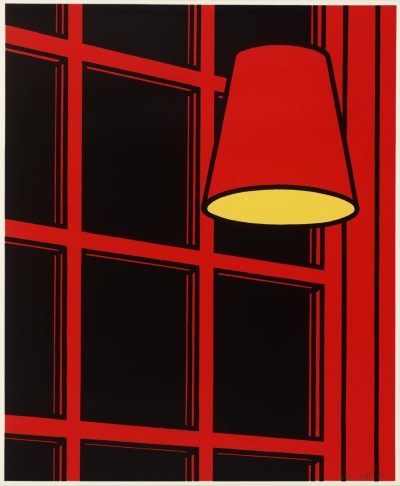
Adam Fuss
Political theatre seems to be on the uptick. Or rather it is being foregrounded by media puppets.
Take the government shut down as example one. Or the debt ceiling, which is just part of the same show.
Or better, take the raids on Somalia and Libya. These really are the stuff of kitsch TV and film.
From Raialyoum…
“A US official told CNN television that the Libyan Government had been informed in advance of the raid carried out by u.s. special forces in broad daylight, but Libyan Prime Minister, Ali Zeidan denied this, saying he had demanded an explanation from Washington and stressing that Libya was, ‘Keen on prosecuting any Libyan citizen inside Libya’. However, his keenness is one thing, and reality is another.
The US Government led the NATO military intervention in Libya, declaring that it wanted to see a ‘secure, stable and democratic’ future for the nation – and here it is: following NATO’s ‘liberation’, Libya is a failed State and its liberators do not hesitate to become the first to violate its sovereignty and insult the dignity of its citizens and its putative Government.
Ironically, a Libyan government spokesperson said they hoped the incident would not affect its strategic relationship with the US.
What exactly is this strategic relationship? It’s essentially a state of total and humiliating dependency whereby the ‘liberated’ nation is meant to thank the invaders and, like a banana republic, let the master do exactly as he likes with no need to consult that nation’s ‘leaders’ who have neither weight nor respect.”
This is, of course, in reference to the capture in Libya of Nazih Abdul-Hamed al-Ruqa by US led NATO forces. And the failed operation to capture a Al Qaeda agent in Somalia nicknamed Mukhtar Abu Zubeyr, leader of a, quote, shadowy Islamicist group. Now, these are both nakedly illegal actions on the part of the U.S. military. Its part of the blanketing of all Imperialist state terror under the rubric “war on terror”. Back in April 2001 the arrest of Slobodan Milosevic, and quick transport to The Hague, was rarely questioned in the Western press. Or the US military escorting Aristide, at gunpoint, out of Haiti. There are, since 9 11, countless extra-legal assasinations, including one of a teen age American citizen. Few people question this. If, say, Bosnia snuck a team of commandos into Texas to snatch up Rick Perry and take him to a black site in Anarctica, I am guessing more than a few people might be outraged. Or a crack squad of covert operatives from South Africa came into Tel Aviv and killed some IDF higher up, I think retaliation would be huge and insanely extended.

Marina Bychkova.
As an aside, if you google for photos of Milosevic, they come under the following headers (for Chrome anyway, via Google)….Genocide, war criminal, Trial, and Death. That is it. What is the message? Never mind he was never convicted of anything, nor was he in fact guilty of anything. But repeat the lies enough. Repeat them about Castro, and about Chavez, over and over. Repeat them about Srebenica, or about Rwanda, and simultaneously bury topics like Sabra and Shatilla, or El Mozote, or My Lai, or Falluja. Never mind the domestic extra legal assasinations after Hurricane Katrina.
But, back to current theatre. The U.S. Government lied about Jessica Lynch, it lied about Pat Tillman, and it lied about the entirety of the capture of Osama Bin Laden. There were movies made about each of these people and events. The movies lied, too. Finally there was a documentary about Tillman. I am sure someone told the real Lynch story, but the point is, what version of these stories do the general public accept? If Joe Average is asked about Bin Ladin, does he or she answer, Zero Dark Thirty was fantasy? Does he or she say, the government had no business orchestrating a coup against Aristide? Do they say, oh, Pat Tillman was shot by friendly fire…at best…and was deeply disillusioned with the war, or do they think he was a brave soldier doing his duty in the great clash of civilizations? And if you ask people to name five dictators I would guess they would name Castro, Mao, and then maybe Milosevic, or Chavez or Kim Jong Il, and finally maybe Pol Pot or Idi Amin. Those are the sterotypes I think. Never mind in some cases revolutions took place. Never mind there were mass movements and required courage and sacrifice to overthrow the Imperial class, the royalty or the aristocrats. Before returning to current affairs, my point is that Google is not neutral. There is only the constant drumming of propaganda. All the time. Linking Castro with Pol Pot, or, as I have often seen, with Hitler, creates the general conflating of fascism with totalitarian, and of course with communisim or socialism. Any nation resisting western business interests is labled totalitarian. Period.

Slobodan Milosevic
One question is where did the commandos come from that were operating in Tripoli? From an aircraft carrier or warship, or from Egypt, or from Gotham City or S.H.I.E.L.D.? And the white house has said it was Seal Team Six…you know the one that DIDNT do all those things claimed in the fantasy movie made by Katheryn Bigelow, who failed this particular Somalian mission.
Now, the Somali operation was in theory a response to the Westgate Mall massacre in Kenya. Carried out, so “experts” say, by al-Shabaab. Of course there are other theories linked to this attack, such as this;
http://www.counterpunch.org/2012/04/06/grab-everything-and-justify-it-by-war/
And clearly, the first thing to look at in acts of international “terrorism” is timing. Who is helped by the attack, at this particular time. Well, the question then becomes exactly what is to be believed about all these shadowy terrorist groups? Nobody is captured and given an open trial. Only the lowest level flunkie goes on trial. The rest are killed.
Here Gene Glickman comments:
“…this government staged an unprovoked attack on Iraq, based on lies, leading to widespread destruction in that country, including much loss of life and huge population displacement. This same government sends drones that kill and wound people – both alleged terrorists and non-combatants – currently mostly in Pakistan and Yemen, two countries with which the United States is not at war. Unlike the President, sitting in comfort in the White House while he decides on who should die that week thousands of miles away, and for the drones’ operators who feel they are “playing video games,” for those in the target countries this is deadly serious business. To them, being on the drones’ receiving end has had the natural effect of creating widespread fear and hatred of the United States in those countries and elsewhere. But, similar to the whistle-blowers, while many will suffer from a fear-induced paralysis, some will become anti-U.S. terrorists and thus, future targets of drones. (I am deliberately not differentiating between the Bush and Obama administrations, nor between the Democrats and the Republicans. When it comes to these policies, the two parties are pretty much indistinguishable and the latter administration is a continuation and extension of the former. The mindset that produced “shock and awe” in Iraq is much the same in its desire to create terror as is the more current use of drones.)
But the capacity of the U.S.-identified “terrorists’” to do damage is dwarfed by that of the U.S. military. It is the latter that has ready access to almost unlimited and up-to-date weaponry, which it either employs as a threat or actually puts to use. This assorted weaponry kills, wounds and terrorizes large segments of populations, not merely “the terrorists.” When innocents are harmed, and such euphemisms as “collateral damage” are called into service, the reasons may be ignorance rather than malice on the part of the U.S. military, but the effect on the local population is the same: fear and paralysis in uneasy tension with rage and the desire for retribution.
It should be pointed out that U.S. use of terrorism as a tactic is not new, though the term itself was not applied until recently. The easy use of the military option was what led Martin Luther King, Jr. to say that his own government was the greatest purveyor of violence in the world. Earlier on, in 1945, the atomic bombs that destroyed Hiroshima and Nagasaki were an example. They were designed to terrorize not the Japanese, who had already recognized they had lost the war, but the Soviets, in the then-nascent Cold War to come.”

Andy Warhol
Today, with the increase in surveillance, and as I’ve pointed out before, a system run by people very far this side of ‘best and brightest’, the results are increasing numbers of people put on ‘no fly’ lists (without trial or due process), or detained without charges, or mis identified by faulty facial recognition technology (which strikes me as just this side of phrenology), and mostly is creating a normative state of fear and paranoia. Who do you fear more? Al Shabab, or the CIA? Mossad or Somali Pirates? I mean, we are speaking here of a U.S. military that is larger than the next ten largest national militaries combined, that has over 1500 armed nuclear warheads ready to fire, and in the case of Israel, we have another nuclear power, who refuses to sign treaties, and, in fact, refuses to admit they even have the nukes that everyone knows they have. Honestly, the U.S. has exactly nothing to fear…which is why these half baked marketing ideas are trotted out…i.e. “Asymmetrical warfare”, etc. You hear them constantly in TV and film. That somehow, having the largest most powerful military in the history of the world is not enough to make anyone feel secure.
Here is an informed and very evocative piece on conditions in Kenya today:
http://www.counterpunch.org/2012/04/06/grab-everything-and-justify-it-by-war/
So to return to the debt ceiling. The truth is, of course, Obama and the US govt. could easily avoid this problem. They ARE the government, after all. And if social security checks stop coming, money that actually belongs to the people who worked for it, then there is going to be a LOT of unrest. For the elderly, a lot of pain, a lot of suffering, and probably a lot of suicides. The unrest, however, is what those new militarized police departments are for. Those new armored multi million dollar fighting vehicles are for. To SQUASH unrest. Brutally. And with absolute impunity.
You cannot seperate domestic and foreign policy. They are linked completely. The new TPP pact, which is barely about trade, but far more about corporate relief and protection from legal prosecution, as well as it is about internet freedoms (as in, doing away with internet freedom). TPP barely registers on the media radar. Its not a movie. Somali raids by Seal Team Six…now THATS a movie. Commandos capturing a high ranking Al Qaeda leader, thats a movie. But if everyone the US captures is described as a high ranking al Qaeda leader, then Al Qaeda must be the most management heavy organization in the world.
What happened at the Westgate Mall in Kenya cannot be seperated from what happened at the Boston Marathon, or in Mumbai or what is happening in Iraq every day now for a decade. It cannot be seperated from the escalation of police brutality and over-reaction to minor crimes, the excessive force that continues to result in unintended death to many in custody. It cant be seperated from record deportations. Or from TPP and certainly not from NDAA. But, the interesting thing is, in a sense, where the cultural landscape is affected, and in what ways.

Gary Fabian Miller
I was trying to think after last posting, about the way in which crime stories hold our attention. Or why they have such durability. And then I wanted to look more at why 99% of Hollywood film and TV is both junk, AND violent, and about crime. Why do some films or TV capture a sense of our basic trauma, or the bedrock suffering that life in this society entails? And why are others just melodrama or violence porn? Maybe my question is more, why are indi films, reactions to excessive violence and self consciously liberal, almost always so bad? If you look at a French television crime series, Engrenages (Spiral in English), one quite honestly does not feel the narrative is upholding the status quo. Now, perhaps it is, and Ive only watched one season, actually not even a whole season, but the sense is one of existential pain. I find Danish crime series to exhibit the same cold ambivilance about authority. There is little self pity in a lot of these European shows, and rarely is the violence anything other than destructive. But I point this out because in the US, the default setting for drama is really melodrama. And melodrama as you find it in Hollywood, is actually far more dishonest than the cop franchises. The melodrama you find in theatre, in major New York theatres, or Broadway, or big flagship theatres throughout the country, is far more dishonest then even Bochco or Dick Wolff. It is worse because suddenly, without the genre conventions, without the violence act, the narrative retreats (of neccessity in a sense) further behind the generalized moralizing of the liberal white class that consumes culture in the first place. These generalizations are prescriptive. They lecture and chide and the most prevalent idea at work in these narratives is that of responsibility. As the society feels ever less powerful, with ever less agency and purpose, the trumpeting of responsibility grows ever louder.
This class cannot wrap its mind around what daily life is like in Kenya, or in Somalia, or in Eritrea or Burundi. Or in Algeria or Libya or in the Philippines.
But what does this have to do with political theatre? The tearing down and bulldozing of slum dwellings in Nairobi, by the Kenyan army (and foreign advisors) reflects the tearing down of the 9th ward in New Orleans after Katrina, and it reflects the raising of Palestinian villages by the IDF. It resembles the forced movement of poor populations around the globe. The segregation of undesirables, or a surplus work force for whom there are no jobs, is becoming the new normal. Look at Detroit. Look at Gary Indiana, or El Paso, or Port Au Prince or Lagos. The point is that state power is directed by the Imperial power, the U.S.A. The war is not on terror, its on the poor.
US corporate melodrama, and one sees this expressed in Independent film {sic} even more clearly: the so called alternative culture is even more repressed, more amnesiac. The white male patriarchy is relplaced by soft male patriarchy. Soft and sort of icky, to be honest. Its what Bly used to call the Health Food Co Op passivity. Into this world the unconscious never travels. It is a cleansed world of mostly white problems, and if actual social issues do arise (and they do often enough, in theory) then the narrative expression is one of bathos. It is sentimentalized, and the sentimental is always a violence against the text.
 In a sense, at least as it operates now, what replaces genre conventions in narrative is an amplified sense of this manufactured identity. The inward looking and magnified narcissistic subjective. Freed from the crime the subjective floats freely in an ahistorical realm of personal identity issues. The subject is concerned with his or her feelings, desires, and opinions. The opinions are second hand aquisitions from the master narrative. The feelings are hermetic. They are sealed off from any questioning of the manufactured ‘real’. Genre has subsumed narrative exactly because without those conventions the authors of, at least, popular entertainments (but really this is almost everything now anyway) are adrift in a completely solipsistic universe in which story is about the making of story. Films are about the making of films. Literature is about the creation of literature. This inward trend has reached an almost singularity of voice and expression.
In a sense, at least as it operates now, what replaces genre conventions in narrative is an amplified sense of this manufactured identity. The inward looking and magnified narcissistic subjective. Freed from the crime the subjective floats freely in an ahistorical realm of personal identity issues. The subject is concerned with his or her feelings, desires, and opinions. The opinions are second hand aquisitions from the master narrative. The feelings are hermetic. They are sealed off from any questioning of the manufactured ‘real’. Genre has subsumed narrative exactly because without those conventions the authors of, at least, popular entertainments (but really this is almost everything now anyway) are adrift in a completely solipsistic universe in which story is about the making of story. Films are about the making of films. Literature is about the creation of literature. This inward trend has reached an almost singularity of voice and expression.
What is erased in this hermetic universe is not just the actual material history of the world, or society, but the individual’s history as well. The default pop-psychological backdrop to most mass entertainment narrative is without real linkage the world. So, while cheap cop show narratives espouse a universally fascistic ethos, the crime element in the plot serves to minimize a bit of the solipsistic reasoning and expression of the usual ‘prestige’ drama.
In the crime genre, however, there seems to be space to question the status quo. It rarely happens that way, but there are elements that almost occur naturally because of an inherent alegorical aspect to the crime. Just the raising of transgression, of the idea of ‘crime’ provides a platform for the truth content that alligns with the sense of the crimes of society. The black teenage mugger or gang banger while obviously a racist cliche, also posits the fact of crime. And such violence, and crime, holds within it a critical element. Now it is almost always eclipsed by the overwhelming insistence on the nobility of institutional authority. The crimes are fetishized as inherent flaws of the “bad guys”. The crime is really the crime of identity. When upper class characters commit crimes, a great deal of elaboration and explanation take place, because this is not natural. When black teenagers commit crimes, it is only the extension of their inborn criminality. But I suspect the need to create fictional crimes is driven by a subconscious recognition of what once was the purpose of all storytelling. There are echos of Girard’s ideas on mimesis here.
“If one individual imitates another when the latter appropriates some object, the result cannot fail to be rivalry or conflict.”
The genre of crime narrative also seems to allow for something outside the imitation of just surface. It is as if the idea of violence in these fictions disrupts the unity of the ‘real’. Human desire IS mimetic, and hence the rivalry, the revenge, the aggression born of these fictional transgressions resonate as truthful rather than realistic.
The prevailing sensibility of commodity culture suggests that either art is entertainment, or a bias toward arts for arts sake, or, in the world of solipsistic po mo thinking, that formal depth and truth content are mere illusions. The emphasis on originality and innovation drains away the mimetic desire in authorship. The transformative power of a Dante or Shakespeare is given an emotional prophylactic enclosure that guards against an experience of the actual artwork.
“Real awareness of mimetic desire threatens the flattering delusion we entertain not only about ourselves as individuals, but also about the nature and origin of that collective self we call society.”
Rene Girard
Genre narrative if it treats the crime directly as a human occurance, whatever motives are assigned to it, functions in a way that allows for glimpses of the disunity that we all suspect is there just behind the velvet curtain. In a sense, the modern approach to myth and ritual, the belief that it is mere superstition is only there to guard against the truth that myth actually is far closer to the core experience of being human than society can stand. Added to this, of course, is the ideological demand for a reinforcement of this particular society as the culmination of the long march of progress.
But let me pause, and give an example of the propagandistic aspect of mass culture today. In the second episode of Homeland, now in it’s third season, the CIA is trying to discover the source of terrorist {sic} funding. And of course that source turns out to be Iran.

Albrecht Durer
Here is Stephen Gowens….
“US, Israeli and other US-ally intelligence agencies, western politicians, and the western media, have cried wolf about Iran developing nuclear arms since the early 1980s. In 1984, Jane’s Defence Quarterly reported that Iran was “entering the final stage of the production of a bomb.” [5] In 1995, The New York Times reported that US and Israel officials believed that Iran would have nuclear weapons by the year 2000. [6] Thirteen years later, Iran still doesn’t have a bomb. “It’s 1938 and Iran is Germany, and it’s racing to arm itself with atomic bombs,” warned Israel’s current prime minister, Benjamin Netanyahu in 2006. [7] Netanyahu has been raising the same alarm for years. In 1992, he predicted that Iran was three to five years away from producing a warhead. [8] Today, he says Iran is only a few months away from developing a nuclear bomb. With his egregiously bad record of prediction, Netanyahu has revealed himself to be a fear-monger, and an unreliable prognostic.
No intelligence agency has ever produced hard evidence that Iran is developing nuclear weapons. The IAEA has never found that Iran has diverted nuclear material to military use. The US intelligence community’s Intelligence Estimate says that Iran abandoned a nuclear weapons program in 2003. The opinion that Iran had a nuclear weapons program to abandon in the first place is probably based on Iran acquiring information and equipment from AQ Khan. [9] Whatever the case, the US intelligence community doesn’t believe that Iran is developing nuclear weapons today, and has said so repeatedly. Even so, major US news media regularly assert that the West believes Iran is secretly developing nuclear weapons. If so, who in any official capacity in the West truly believes this?
In 2006, the United Nations Security Council passed six resolutions on Iran’s nuclear energy program, demanding that Iran suspend its uranium enrichment program. But the Security Council had no legal basis to claim that Iran’s nuclear energy program is a threat to international peace and security, and therefore, no basis to pass its resolutions. To repeat:
• There is no evidence Iran has nuclear weapons.
• The country’s nuclear facilities are monitored by the IAEA.
• The IAEA hasn’t uncovered any diversion of nuclear material for military use. [10]
What’s more, Iran hasn’t attacked another country in 200 years. And if Iran’s enriching uranium is a threat to international peace and security, why isn’t Argentina’s, Brazil’s, Germany’s, Japan’s and the Netherland’s? The answer is plain from Bolton: They’re US satellites; Iran isn’t.”
What the United States wants is a return to Iran as a client state, much as it was under The Shah, who was put in power by the CIA because Mossedegh had intended to nationalize the oil industry.

Mark Strong, Low Winter Sun, 2013
As Gowens points out…
“Ever since the Shah’s overthrow, Washington has been waging war on Iran, through a proxy (Saddam Hussein’s Iraq), by sanctions, assassinations, cyber-warfare and threats of military intervention. The goal is to bring Iran back under US domination.”
Now, the default setting for corporate created narrative never introduces any actual history. Instead, there is the construction of a story that links to a revisionist sort of non-history, and therefore the entire faux drama of poor bi-polar Carrie, a CIA analyst and case officer, is bloodless and ends in a self parodying bathos. There can be no transgression here. And this is the problem with 99% of cop and military shows and films. The transgression is false. It becomes only a form of violence porn. However, what I am suggesting is that sometimes a crime really is a crime. And again, the now defunct AMC series The Killing (not coincidentally based on a Danish show) is a good example.
It is interesting to explore or ask the reasons for the sense of mimetic desire that arises from certain narratives. Why do so many of the film noirs from the 1940s feel disturbingly disruptive today? Or a film such as Paul Schrader’s Blue Collar? The answer lies partly in the inclusion of a working class backdrop, and also by a performative element that conveys the body as a repository for desire. The reduction of desire to purely sexual desire in almost all film and TV today is another symptom of a kind of amnesia. Desire is genital, it becomes pornographic. The actor becomes phallic, the human inter-relationships are reified, the objectification sexualized, and hence alienation is normalized.
The collective murders of the state must be denied. This primary repression neuters the basic human impulse to tell stories. The reliance on a scrubbed and antiseptic narrative, a valentine to western superiority and to the riches of technical sophistication (however illusory this might be) replaces the dread and melancholy that is the natural result of a mimetic appropriation and rivalry. In a society so permeated with cruelty, from factory farming (mere animals, unlike us) to the wholesale industrial slaughter of millions by the state, denial takes the form of false narratives of virtue and redemption. There is a layer of guilt behind all narrative crimes. Guilt for our own complicity, but also for the recognition that ceremonial or ritual murder is a mechanism for reunifying the social.
The scapegoat.
The discounting of the very idea of the sacred is another symptom in the erasure of that reconciliation that occurs when social equilibrium is linked to violent sacrifice. That society might be toxic at its core is the final truth no modern narrative seems able to embrace. The manufacturing of victim identity is yet another societal strategy for erasing the alegorical implications of violence. The cultural emphasis on hurt feelings and insult, the life style choice to be a ‘special’ victim is repeated compulsively.

Patrick Caulfield
One of the oddest notions introduced narratively in the last thirty years is the idea of closure. Revenge is too unsettling, but closure washes away the bad taste from the endless soul destroying impulse for revenge. For revenge cannot satisfy, you cannot kill your enemy enough times.
What exactly is supposed to be closed? Ah, those who hurt me can now be hurt. Closure. It is a false solution to a false problem.
The sacred was part of a predication that valorized the idea of a narrative question. That the asking of questions, without expectation of answer, had importance. The fabric of the solipsistic literature of today’s ‘official’ authors of importance are there to provide answers. Opinions or observations substitute for questioning, for curiosity. Wonder, and the sacred are pushed back down, out of sight. One of the virtues of films such as Blue Caprice, is that one of the things made clear in this narrative is that no solution and no answer can be sufficient to explain the crime. The crime is part of a criminal society. We catch a glimpse of societal failure. It is the most Dostoyevskian of films. Or another AMC show, at least the two hour final episode for the first season, Low Winter Sun. It is simply a perfect example of the mimetic desire that fuels the best genre work. Not surprisingly, the setting of Detroit (and it’s filmed in Detroit) provides it’s own auto-critique of corporate America and the baneful dream that now eats it’s own children.
The loss of wonder and the need to keep the tragic truth at bay results in ever more obsessive repetition of the empty rituals of the false ‘real’. The manufactured real of studio film, the need to validate state terror and surveillance means that the narrative must drift, cut loose from all concrete experience and observation, to claim value purely as a commodity to be purchased. And buying the narrative, and owning it, result only in the need to go out and buy another, and then another.
The post modern subject is a virtuoso of shopping, an owner of bruised feelings, and a connoisseur of his or her own narcissism. The empty narratives of corporate melodrama or propagandistic sadism, of scapegoats and demonized others, have given birth to the cynical snarky system of hyper irony. If the narratives are only to be purchased, then the purchasing itself must be endlessly fine tuned. Small incremental changes serve to sustain this compulsive repeating of the same. The drumbeat of militarism is only the inflationary expression of nervous compensatory projection. Superheroes save the world. No, they save the universe. The alternative melodrama must dwell with over insistence upon the frayed cuffs of our favorite sweater or the damaged cord of my favorite blender. We suffer an ersatz pain. The minor flaws of protagonists are over investigated, and given disproportionate importance.
The McCarthy novel, No Country for Old Men (not the film) the blue eyed colonial demon that haunts the landscape is the power of latent fear. The recognition that he cant be killed and won’t ever go away is the subject of the final extended rumination of the Sheriff at the end of the novella. That the Coen’s film version cast a Spaniard, brown eyed and dark complected, only reinforces the truth of the novella.
Nobody is being held hostage by the House. Obama pushes along TPP, deportations just reached record highs, prison populations grow and police violence increases. It is bad melodrama. Kitsch politics.

Judy Fox

http://www.counterpunch.org/2012/09/18/pol-pot-revisited/
Yeah\ Overkill……….Im not sure the point YOU are making with that link? I was pointing out the conflating of pol pot, for example, with a Castro. That any resistance to western business interests will tend to get a country demonized in the western press. Pol Pot, few would argue, was a nightmare. But these confusions make for blanket judgements about anyone of any country, or movement not controlled by the West…or really, the US.
The doll in the picture was not made by Hans Bellmer. The doll was made by Marina Bychkova.
Your right, thanks Michael.